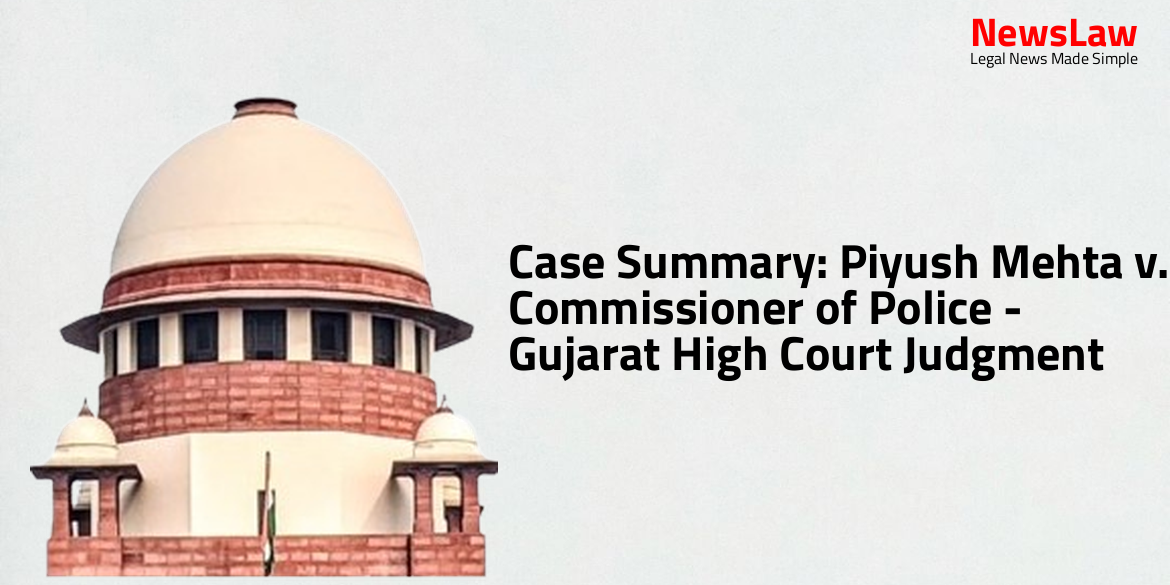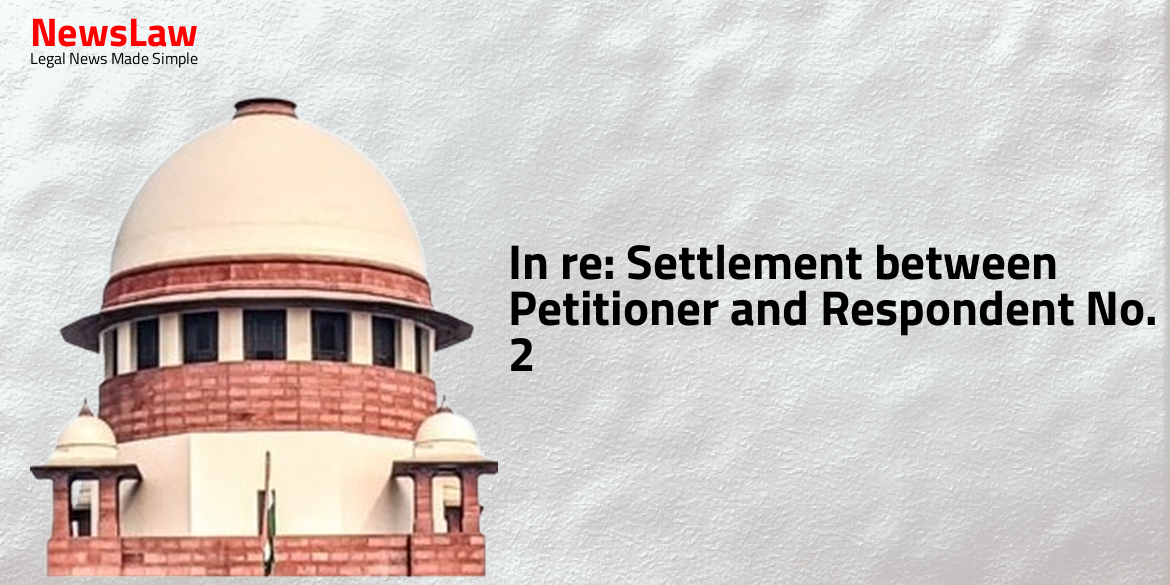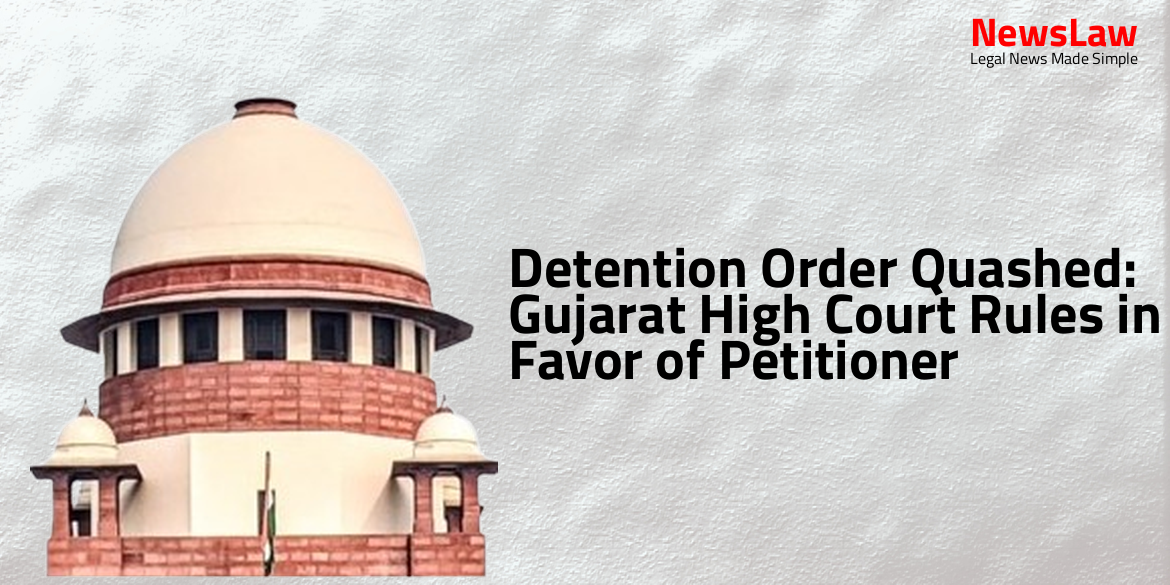In a significant legal showdown, the case of Ramakrishna Mission vs. State of Gujarat has raised key questions about the classification of public functions. The Gujarat High Court’s judgment holds pivotal insights into the complex interplay between government grants, institutional autonomy, and the definition of public authorities. Stay tuned to unravel the legal intricacies of this case!
Facts
- The appellant filed an appeal against an order quashing the writ petition seeking to invalidate the appointment of respondent No.4 as Professor and Director of the Institution.
- The writ petition was rejected by the learned Single Judge on the grounds that the respondent was not considered a State under Article 12 of the Constitution of India.
- The appellant sought a writ of Quo-Warranto to challenge the appointment order issued by the Institution.
- The appeal is filed to contest the decision of the Single Judge regarding the maintainability of the writ petition.
Arguments
- The petitioner, a Social Activist and R.T.I Activist – Whistle Blower residing in Ahmedabad, filed a writ petition.
- Various cases were cited to argue that the respondent should be considered a ‘State’ or ‘Authority’ under Article 12 of the Constitution of India.
- Multiple judgments were highlighted where the Court consistently ruled that the respondent is not a State or Authority under Article 12.
- Financial grants provided by the State of Gujarat to the respondent were mentioned to argue for deep control and influence of the State.
- The petitioner’s advocate relied on judgments and government resolutions to support the claim that the respondent should be considered a State.
- In response, the respondent’s senior advocate argued that the appeal should not be entertained as the respondent is not a State as per Article 12.
- A preliminary objection was raised regarding the maintainability of the writ petition and appeal based on the respondent’s classification as a ‘State Cancer Institute’.
- Arguments were presented by both sides regarding the nature of control and affiliation of the respondent with governmental bodies.
- Mr. Nanavati argued for the dismissal of the appeal, stating that the Government does not control day-to-day functioning of the respondent
- The respondent is governed by decisions of the University which are binding to the management
- Even if revenue expenditure was from State Government finances, there was no Governmental control over day-to-day management
- Mr. Shukla did not argue that despite grants, the Government controls day-to-day management
- The goal is to maintain consistency and avoid uncertainty
- Examining whether there are extraordinary circumstances warranting a change in settled matters
- Mr. Shukla’s main argument is the 7 Pay Commission’s applicability to the respondent indicating State control
- Rejecting the notion of pervasive Government control over the respondent based on acceptance of the 7 Pay Commission
Analysis
- The issue at hand is whether the hospital’s functions qualify as public functions for a writ of mandamus under Article 226 of the Constitution.
- The hospital is a branch of the Ramakrishna Mission, established by Swami Vivekanand.
- About one-third of the hospital’s income is from state grants, but the State does not control its daily operations.
- The Mission’s objects include promoting study of Vedanta and comparative theology, without profit-making motives.
- The Governing Body of the Mission manages its properties and funds.
- The presence of state grants and concessional land does not imply pervasive government control over the Mission.
- The Memorandum of Association does not indicate government control over administration and management.
- The key consideration in this appeal is the adherence to precedent unless there are extraordinary reasons to do otherwise.
- Ramakrishna Mission runs a 263 bedded hospital at Itanagar.
- The grant in aid provided by the State government covers the cost of running 60 out of the 263 beds in the hospital.
Decision
- No governmental control in the functioning, administration, and day-to-day management of the Mission.
Case Title: YUVRAJSINH RATANSINH RATHOD Vs. STATE OF GUJARAT
Case Number: R/LPA/1404/2023



